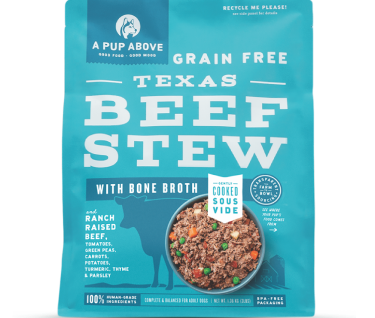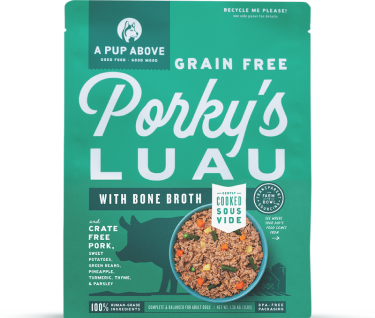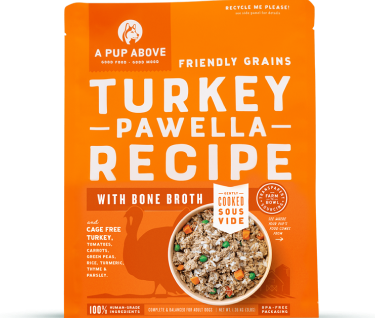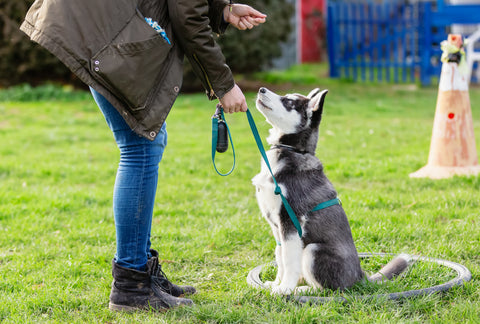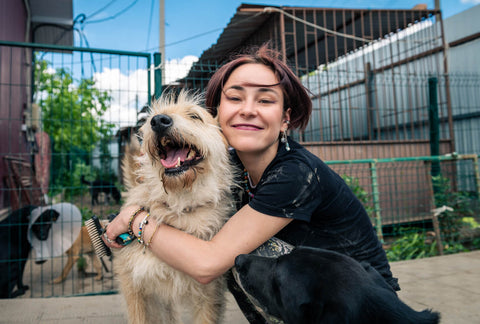
Call of the Wild: Exploring the Reasons Behind Dog Howling
Ever paused during a quiet evening because a distant howl tugged at your heartstrings? At A Pup Above, we're just as intrigued by these soulful serenades as you are.
Howling isn't just a quirk — it's a window into our dogs' emotional and communicative lives. So, why do our domesticated dogs, far from their wild roots, still feel the call of the wild?
Read on to find out!
What Exactly Is a Howl?
If you’ve ever listened to a dog howl and felt like you were hearing echoes from a wild, ancient past, you’re not far from the truth! A howl is more than just a noise — it's a primal form of communication that dogs inherited from their ancestors, the wolves. This long, drawn-out call was originally used to coordinate with members of their pack across long distances or dense forests.
What Breeds Are More Likely To Howl?
Which dogs might treat you to this soulful sound more than others? While any dog might feel the urge to vocalize this way, some are just more inclined to do so by their very nature.
Let’s meet the usual suspects:
- Siberian Huskies: Famous for their vocal antics, these dogs might just sing you a ballad.
- Alaskan Malamutes: Cousins to Huskies, they’re not shy about belting out a tune or two.
- Beagles: These little hounds pack a powerful howl, often used to signal their findings on the trail.
- Bloodhounds: Known for their deep, resonant baying, which can sound like a melodious howl.
- Basset Hounds: With droopy ears and soulful eyes, their howls travel long and far.
- American Eskimo Dogs: These fluffy white dogs have a howl that can fill the air with their sharp vocalizations.
So, Why Do Dogs Howl?
What drives our domesticated friends to channel their inner wolf? Let's dive into the reasons behind this vocal expression.
Communicating Across the Miles
Historically, howling has been a method for wolves to communicate across vast distances. For dogs, while they may not need to chat across forests and fields, they still use howling as a way to reach out. Whether it's responding to other dogs in the neighborhood or reacting to a high-pitched siren, they're essentially saying, "I'm here!"
Reacting to Sounds
Dogs often howl in response to certain stimuli, especially sounds that mimic the high-pitched tones of a howl, like sirens, musical instruments, or even singing. This behavior can be seen as a form of sympathetic vocalization — they hear a howl-like sound and join in as if responding to a call.
Expressing Anxiety or Stress
Howling can also be a sign of distress. Dogs with separation anxiety may howl when left alone as a way of expressing their displeasure or in hopes of being reunited with their pack — AKA you. It’s their way of coping with the anxiety of isolation.
Attention-Seeking Behavior
Some dogs quickly learn that howling gets your attention. If a dog feels neglected or wants something, they may howl to prompt their humans to focus on them. This can evolve into a habit if consistently rewarded with attention, treats, or play.
As a Warning or Territorial Claim
In some cases, dogs howl to warn others away from their territory or to assert their presence. This territorial howling is a clear message to other dogs or intruders that they are entering an area claimed by another.
Signaling Illness or Injury
Occasionally, howling may be an indicator of pain or discomfort. If a dog starts howling more than usual without an obvious reason, it might be a good idea to check for other signs of illness or injury and consult a vet.
Social Bonding
Howling can also serve as a bonding activity within a group. In multi-dog households or dog parks, one dog’s howl may trigger a chorus from others, reinforcing social bonds through shared activity.
Triggered by Breed Instincts
Certain dog breeds are more prone to howling due to their genetic makeup and historical roles. Hunting dogs, like beagles and coonhounds, use howling to alert hunters to their location or to signal that they’ve found prey. Northern breeds like Siberian Huskies and Alaskan Malamutes have a strong vocal tradition that helps them communicate in their original harsh environments.
How Can You Support Your Dog's Wild Side?
Embracing your dog’s natural instincts while ensuring they're content and well-behaved at home is key. Here are some effective ways to support your pup’s primal side.
- Sound Sanctuary: Create a peaceful space where your pup can escape loud noises that might trigger howling. A quiet retreat can help reduce stress-related vocalizations.
- Active Lifestyle: Engage your dog in regular physical activities to channel their energy positively. This can prevent howling from boredom or excess energy.
- Mental Challenges: Provide mental stimulation through puzzle toys and training exercises to keep their brain occupied and less likely to resort to howling.
- Positive Reinforcement: Reward your dog for quiet behavior and appropriate vocalization to encourage good habits and reduce unnecessary howling.
- Desensitization Techniques: If your dog reacts to high-pitched sounds or other specific triggers, use desensitization and counterconditioning strategies to help them adapt.
- Routine Quiet Time: Implementing structured, calm periods throughout the day can help teach your dog when it’s time to be quiet, aiding those with separation anxiety or attention-seeking behaviors.
- Nutritional Support: Proper nutrition significantly affects a dog's behavior. Feeding them high-quality, human-grade meals like our Turkey Pawella, Chicka Chicka Bow Wow, and Texas Beef Stew ensures they receive all the necessary nutrients for a balanced temperament.
- Understanding Their Needs: Recognize that howling is a natural canine behavior. Responding appropriately to their attempts to communicate, such as alerting you to strangers or expressing needs, can minimize excessive howling.
When Should You Consult a Professional About Your Dog's Howling?
While howling can be a normal part of a dog's behavior, there are times when it might indicate something more serious. Understanding when to seek help from a professional can ensure your dog's well-being and your peace of mind.
- Excessive Howling: If your dog's howling becomes excessive and disrupts daily life, it might be time to consult a professional dog trainer or a veterinary behaviorist. They can help identify the underlying causes and develop strategies to manage this behavior.
- Behavior Changes: Sudden changes in howling behavior, especially if it's paired with signs of distress or anxiety, such as pacing or destruction, could warrant a professional evaluation. A behaviorist can assess if the howling is linked to separation anxiety, fear, or stress.
- Pain or Discomfort: As touched on previously, howling can sometimes be a dog's way of communicating pain. If you notice your dog howling more following an injury or as they age, a visit to the vet is important to rule out any medical issues.
- Unresponsive to Normal Training: If you've tried training and desensitization techniques and your dog's howling persists, a professional might offer new insights and methods, such as counterconditioning or more advanced training strategies.
These professionals can offer tailored advice and treatment plans that respect your dog's unique needs and help manage their howling behavior effectively.
Wrapping Up: Embracing the Call of the Wild
At A Pup Above, we're dedicated to enhancing the lives of our canine companions in every bark and howl. Understanding the reasons behind your dog's howl is more than just a curiosity — it's about deepening the bond you share with these family members.
By recognizing the nuances of their howls, whether they're expressing joy, alerting you to something, or calling for attention, you become more attuned to their needs and emotions.As you embrace the call of the wild that resonates within your dog, remember that the right nutrition plays a pivotal role. Our sous-vide, human-grade meals are crafted to nourish your pet, supporting their overall well-being and helping to moderate behaviors like excessive howling.
With A Pup Above, you're not just feeding your dog but providing them with a foundation of health and happiness. Let’s continue to listen and respond to our pets with the care they deserve — after all, every howl tells a story!
Sources:
Howl Definition & Meaning | Britannica Dictionary
Why Do Dogs Howl? Reasoning Behind This Unique Sound | American Kennel Club


